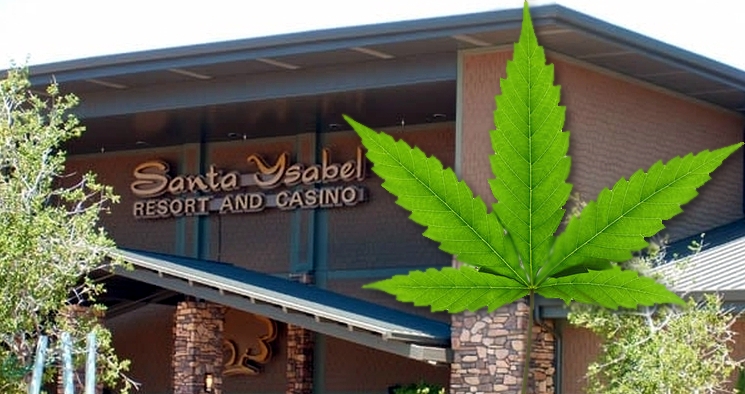After closing its Santa Ysabel Resort And Casino in February of 2014 due to debts of around $50 million, the Iipay Nation Of Santa Ysabel has reportedly turned the shuttered venue’s 35,000 sq ft California gaming floor into a lucrative high-tech medical marijuana operation.
According to a report from The San Diego Union-Tribune newspaper, the past 18 months has seen the federally-recognized San Diego County tribe leasing parts of the property to growers that cultivate and then distribute the drug to legal dispensaries throughout the state while even more tenants are expected once the venue’s once-sprawling parking lot is fitted out with over a dozen new greenhouses.
David Vialpando, Chairman for the Santa Ysabel Cannabis Regulatory Agency And Cannabis Commission, told the newspaper that the operation is still “very small” with only two “grow rooms” that feature “less than 1,000 plants”.
“Mostly it is still empty space,” Vialpando told The San Diego Union-Tribune. “It is still in development. The greenhouses are at various stages of construction [and] it won’t be all cultivation. There will be processing rooms and trimming rooms and storage rooms. There is a lot of infrastructure that goes with the enterprise of medical cannabis.”
The newspaper reported that the Iipay Nation Of Santa Ysabel became the first San Diego County tribe to embrace the medical marijuana industry after the United States Justice Department published a memorandum in December of 2014 that it would not be prosecuting sovereign tribal nations that grow marijuana on land in states that had already legalized the drug. In California, this had come in 1996 following the passage of Proposition 215 while tribal leaders have since passed laws regulating marijuana on reservation land and established the Santa Ysabel Cannabis Regulatory Agency And Cannabis Commission to oversee the fledgling venture.
“We have a highly regulated operation,” Vialpando, who previously served as Chairman for the Santa Ysabel Tribal Gaming Commission, told the newspaper. “The tribe has no ownership interest in cannabis. It doesn’t cultivate it [and] doesn’t process it. It’s not been a secret to our government partners. It’s a highly regulated enterprise. We have inspections and audits and waste disposal to assure that no cannabis waste leaves the reservation.”
Vialpando reportedly worked as an officer with the California Justice Department before retiring in 2011 to head up the tribe’s now-defunct gaming operation and explained that the former casino has made a perfect home for 700-member tribe’s new marijuana enterprise due to its remote location on the top of a hill along with the presence of armed security guards and gates.
“We have quite a few security measures built in and, yes, the location is ideal in not creating any sort of undue public safety risk,” Vialpando told The San Diego Union-Tribune. “The hilltop is a very defensible position [and] a very secure position.”



